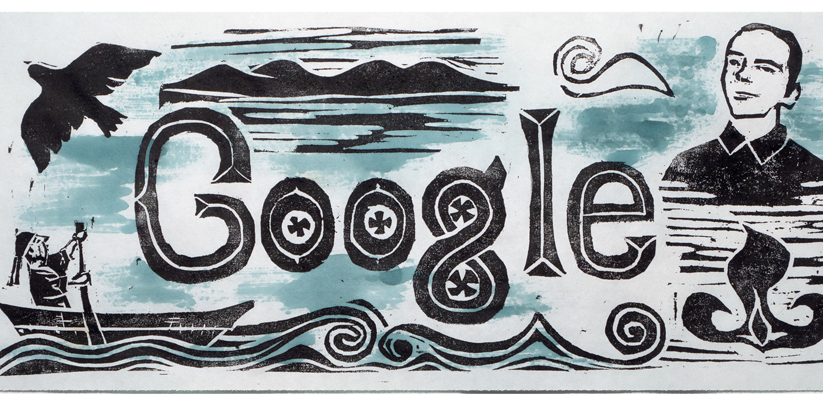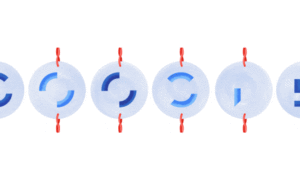This Doodle honors Iboshi Hokuto, an Ainu poet and social activist who authored several tanka and haiku with the intention of enhancing public awareness of Hokkaido’s Indigenous people. One of Hokuto’s tanka, a 31-syllable poems, was published in the Otaru Shimbun, a significant Japanese newspaper, on this day in 1927. Today’s Doodle, drawn by guest artist Koji Yuki, who is now residing in Japan, has woodblock prints that depict ocean vistas and typical elements of Ainu life and culture.
One of Hokuto’s tanka, a 31-syllable poems, was published in the Otaru Shimbun, a significant Japanese newspaper, on this day in 1927.
Hokuto was born in Yoichi, Hokkaido in 1901. Unlike most of the Indigenous Ainu children in his community, he went to Jinjō Elementary School. He experienced significant and regular discrimination at school as a result. Despite the difficulties, Hokuto grew to feel a great sense of pride in his culture.
After becoming involved in youth groups, he founded Chawashō Gakkai (茶話 学会), a culture group dedicated to his own culture. To promote knowledge of Ainu causes, this group issued a bulletin called Chawashi (錕話誌) and hosted study sessions. In addition, he went to poet’s clubs and even sent some of his poems to a journal.
In 1925, Hokuto moved to Tokyo, where he joined academic societies and gave a lecture at the Tokyo Ainu Society. After a year and a half, he realized his work was needed more at home. In Yoichi, he wrote poetry, worked at a kindergarten in Biratori, and published a literary magazine, Kotan.
Soon his tanka were being published in newspapers, opening the door to further publishing of his poems. Hokuto became famous in the Otaru Shimbun. His works often depicted his struggle with tuberculosis and his pride in his Ainu roots.
Today, Hokuto is known as one of the “Three Great Ainu Poets,” and a monument to his poem stands in front of the Yoichi Fisheries Museum. Thank you, Iiboshi Hokuto, for your profound prose and endless activism for the Ainu community!
- WrestleMania 41: Dates, Start Time, Match Card & How to Watch - April 15, 2025
- Rory McIlroy Wins Big at Augusta National– Here’s His Masters 2025 Prize - April 15, 2025
- NCAA DIII Men’s Volleyball 2025: Full Bracket, Schedule, Live Score - April 15, 2025





